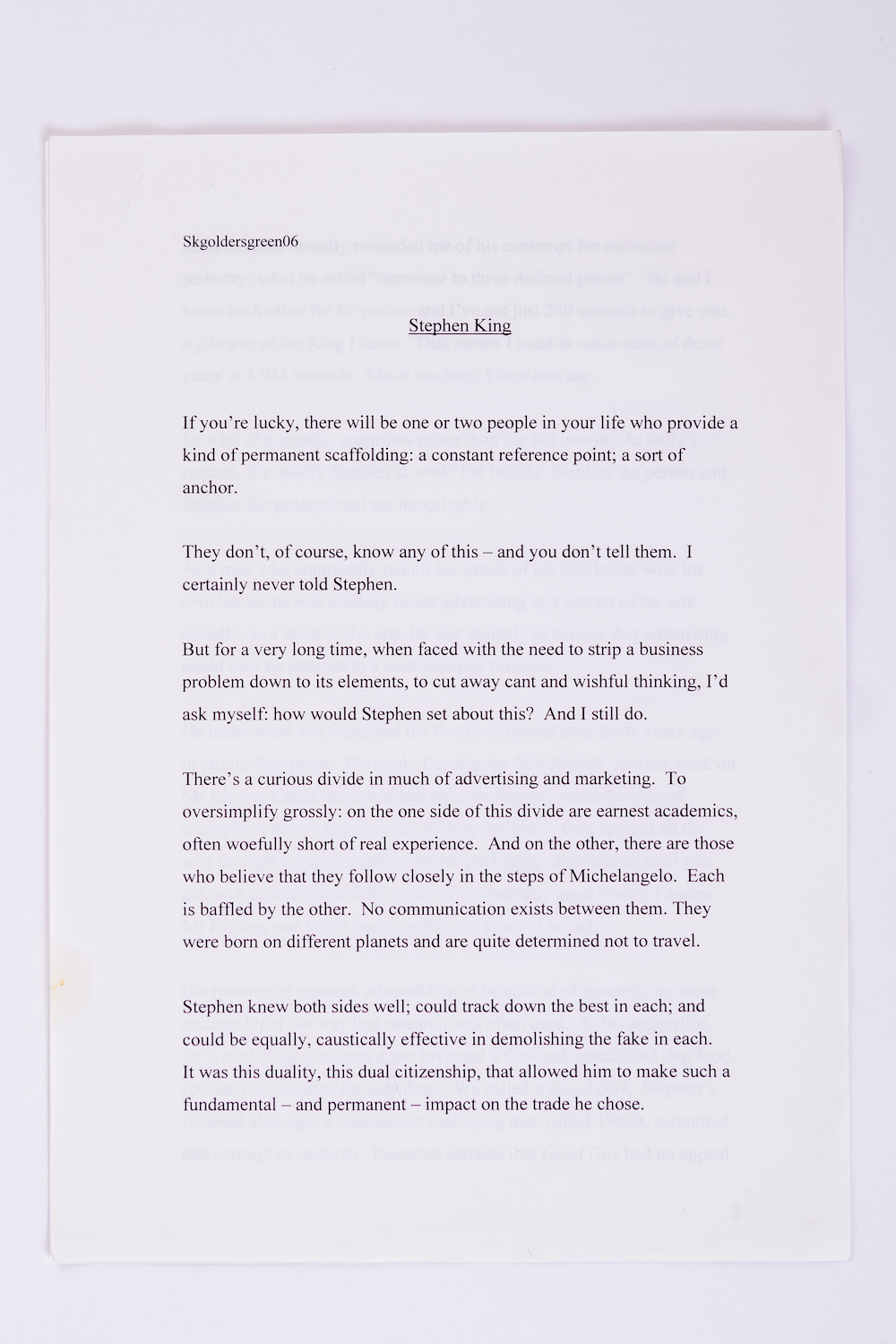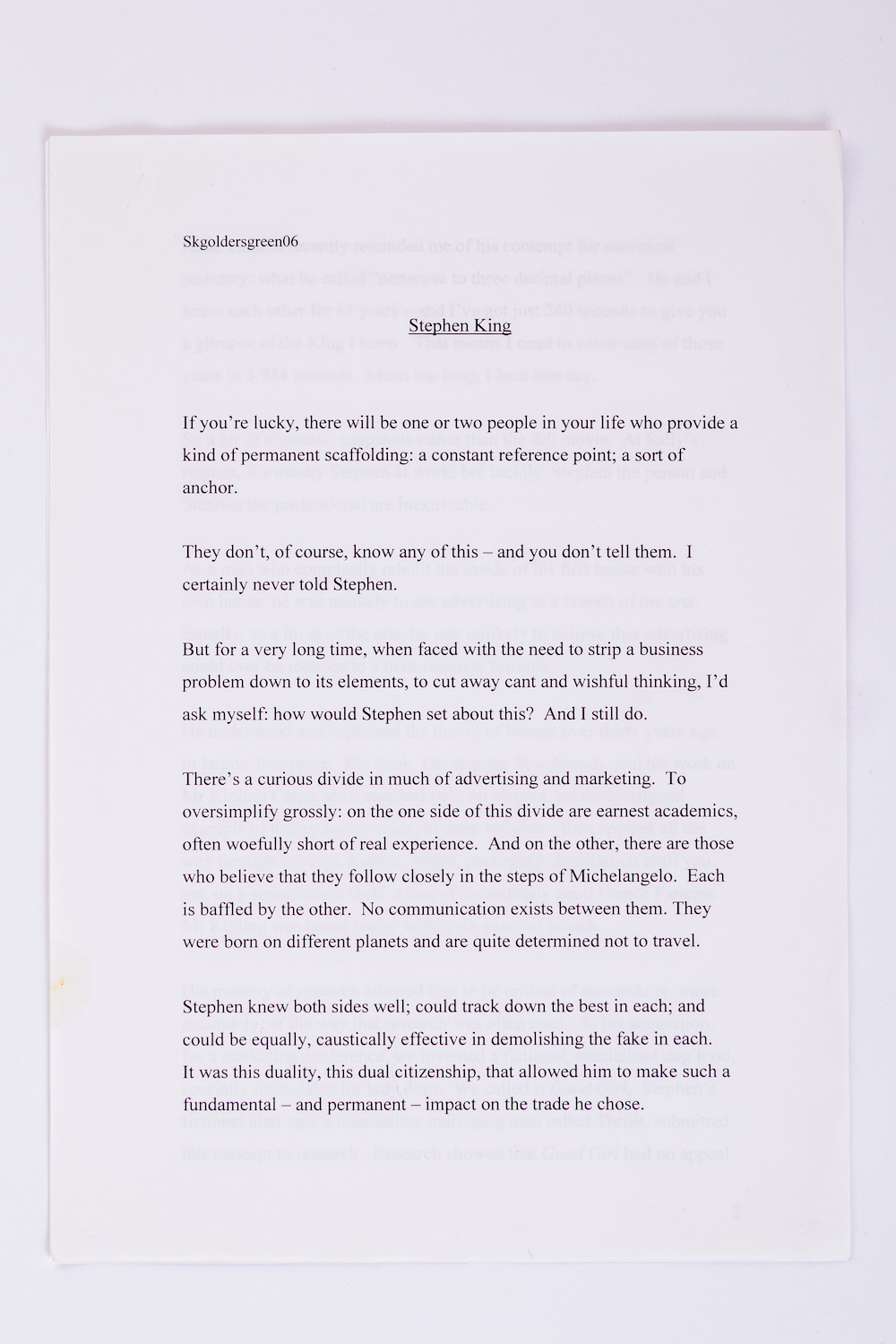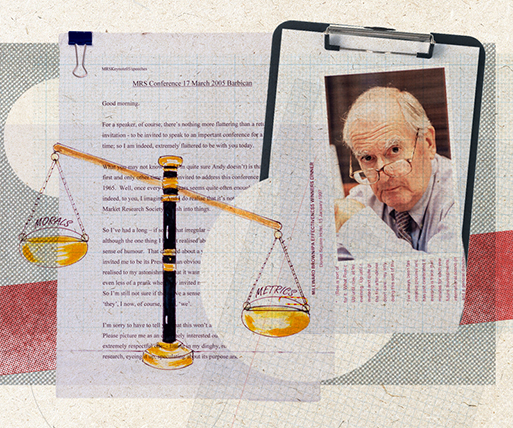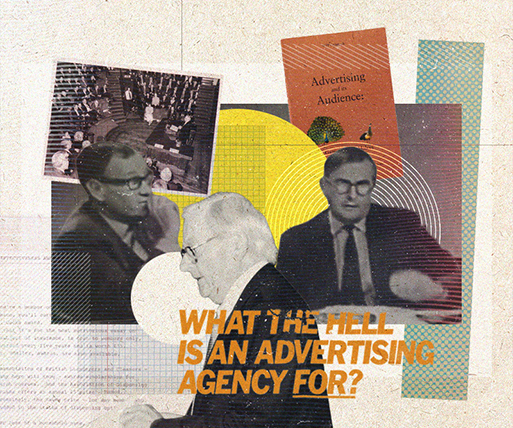Stephen King: Godfather of strategy, 2006
- Date: 2006
- Publisher: Campaign Magazine
- COMMUNICATIONS
This tribute acknowledges Stephen King as the co-inventor of account planning as a discipline – the man who more than anyone developed and articulated a way of planning and evaluating advertising which strengthened first the performance of JWT London and later every JWT office around the world. Just as important, Stephen was a friend with “the wicked sense of humour and the ability to puncture pretension with a word”.
Stephen King eulogy.
If you’re lucky, there will be one or two people in your life who provide a kind of permanent scaffolding: a constant reference point; a sort of anchor.
They don't, of course, know any of this - and you don't tell them. I certainly never told Stephen.
But for a very long time, when faced with the need to strip a business problem down to its elements, to cut away cant and wishful thinking, I’d ask myself: how would Stephen set about this? And I still do.
There’s a curious divide in much of advertising and marketing. To oversimplify grossly: on the one side of this divide are earnest academics, often woefully short of real experience. And on the other, there are those who believe that they follow closely in the steps of Michelangelo. Each is baffled by the other. No communication exists between them. They were born on different planets and are quite determined not to travel.
Stephen knew both sides well; could track down the best in each; and could be equally, caustically effective in demolishing the fake in each.
It was this duality, this dual citizenship, that allowed him to make such a fundamental – and permanent – impact on the trade he chose.
Judie Lannon recently reminded me of his contempt for statistical pedantry: what he called “nonsense to three decimal places”. He and I knew each other for 61 years – and I’ve got just 240 seconds to give you a glimpse of the King I knew. That means I need to cover each of those years in 3.934 seconds. Much too long, I hear him say.
So a bit of a mosaic; snapshots rather than the full movie. At Sally’s request, it’s mostly Stephen at work; but luckily, Stephen the person and Stephen the professional are inextricable.
As a man who completely rebuilt the inside of his first house with his own hands, he was unlikely to see advertising as a branch of the arts. Equally, as a lover of the arts, he was unlikely to believe that advertising could ever be reduced to a mathematical formula.
He understood and explained the theory of brands over thirty years ago: in jargon-free prose. His book, “Developing New Brands”, and his work on Mr Kipling Cakes are a matched pair: an elegant, perfectly-aligned example of theory and practice; of deep insights – then applied all the way through concept, market, recipe, packaging, distribution until you get, on a supermarket shelf, a box of exceedingly good French Fancies.
Mr Kipling was brand leader within six years of launch.
His mastery of research allowed him to be critical of research: or, more accurately, of the way that research was often used. At his suggestion, for a marketing conference, we invented a fictional, specialised dog food, specially formulated for lady dogs. We called it Good Girl. Stephen's fictional alter ego, a humourless marketing man called Thrust, submitted this concept to research. Research showed that Good Girl had no appeal whatever to over half the dog-owning population. Thrust lost what little nerve he had. The final fictional ad bore the proud slogan: Good Girl’s Good for Boy Dogs, Too! His wit was as sharp as his mind - and, quite often, his tongue.
He invented a planning discipline called the T-Plan that eventually influenced the whole of J Walter Thompson round the world. The paper outlining the plan was directed at Management; which was why, Stephen explained, “it was written in Peter-and-Jane language”. Managements around the world never knew quite what to make of him.
By advertising executive standards, Stephen’s tastes were frugal. He once ran one of JWT’s renowned seminars. Writing about it much later, Tom Rayfield observed: “For the first time ever, the Seminar report doesn’t even mention the food and the drink. Knowing Stephen, there probably wasn’t any.”
That comes from Tom’s encyclopaedic work, “Fifty in 40”. For those who’d like more about Stephen at JWT than 240 seconds can deliver, read this book: Stephen merits more than forty lengthy references, including a fascinating verbatim interview.
Even better, read “The King Papers”: a selection of Stephen’s own published papers reprinted by JWT in 1988. There are many more, lurking in his files, ready to be disinterred and read greedily.
So he’ll continue to be that kind of permanent scaffolding; that constant reference point; that anchor: not just for me but for thousands of others; most of whom will not have had the astonishing good luck to have known him.





